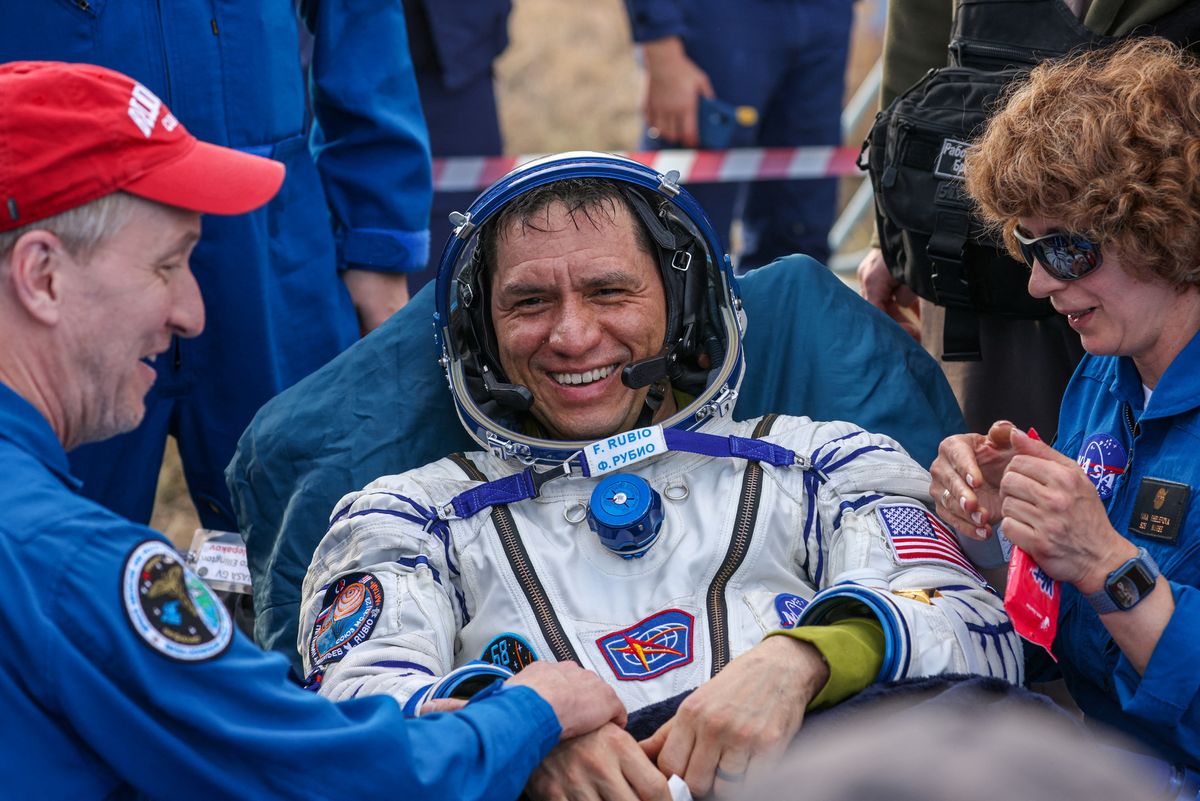How does a year in space affect an astronaut’s body?
NASA astronaut Frank Rubio broke the record for the longest US spaceflight, setting foot on Earth after 371 days off our planet.

A few minutes every morning is all you need.
Stay up to date on the world's Headlines and Human Stories. It's fun, it's factual, it's fluff-free.
Just last month, NASA astronaut Frank Rubio broke the record for the longest US spaceflight, setting foot on Earth after 371 days off our planet. This long trip wasn’t intentional – Rubio got stuck in outer space for longer than planned after he and two Russian cosmonauts (Sergey Prokopyev and Dmitri Petelin) had their 180-day mission dragged out to 371. They were stuck on the International Space Station (ISS) when their ride home was damaged by space junk. Another capsule had to be rushed up there to get them, but that still took a while.
“It’s good to be home,” Rubio said after landing in Kazakhstan.
So how does the human body deal with an extended stay in outer space? By studying Rubio, NASA can get a better idea of what effects long-term space travel has on human health. If we’re going to try to create bases on the moon or travel to Mars, we need to know if our bodies can handle it.
After being in near-zero gravity for so long, the muscles we regularly use on Earth start to weaken. To limit this problem, astronauts do resistance exercises and take special vitamins when in space for a while. When Rubio landed back on Earth, he had to be lifted out of the space capsule, and it could take up to six months for him to get back to walking, standing and holding himself up normally. The muscles that are most affected relate to posture in our back, neck, calves and quadriceps. Our bones also start to “de-mineralize” with less strain put on them, losing strength and mass.
Out in space, astronauts are also exposed to different types and levels of radiation. Based on NASA research, space radiation probably has a worse impact on astronaut health than the regular radiation we experience on Earth. And that comes with increased long-term health risks, like cancer. NASA is working on building special radiation detectors to better gauge the radiation environment, which will give us a better idea of exposure data. Space agencies are also working on methods to limit radiation exposure.
Eyesight, heart strength, sense of smell and hearing, height, brain structure and even genetic activity can also change. That’s not even to mention what isolation and confinement can do to an astronaut’s mental health, with psychological distress being relatively common.
“Space is just not very hospitable to the human body,” said Emmanuel Urquieta, the chief medical officer at the Translational Research Institute for Space Health.




Comments ()